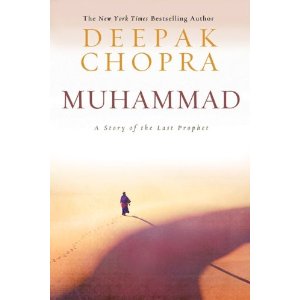Right Think and Wrong Think About Muslims
Earlier this year the Gallup polling organization provided two intriguing statistics about Americans and their view of Islam: 53 percent of Americans view Islam unfavorably compared with 42 percent who view the religion favorably. Majorities view other major religions favorably: 91 percent for Christianity, 71 percent for Judaism and 58 percent for Buddhism. The negativity comes even as 63 percent of Americans said they know little about Islam.
It’s no surprise that ignorance leads the way for prejudice. When I set out to write a fictional account of the life of Muhammad, I considered myself free from prejudice. I was raised in India playing with Muslim kids and maintain close ties with Muslim friends. Yet when I began to research the origins of Islam, I found that compared to what I had absorbed about the life of Jesus or Buddha, my knowledge of the Prophet’s life was almost a blank. But in the present climate of antagonism toward Muslims, a blank is good, since so many people started out their knowledge of Islam with two facts: Arabs control the world’s oil supply, and Muslim extremists attacked the U.S. on 9/11. This accounts for another finding by Gallup, that Americans see extremists as woven into the basic fabric of Islam, a view they don’t hold about Jewish or Christian fundamentalists. Would you say that Christians who kill anti-abortion doctors and burn down abortion clinics are basic to Christianity? Yet the protest of moderate Muslims that jihadis are an extremist minority tends to fall upon deaf ears.
There are some moderating facts as well. Only 9% of respondents told Gallup that they had a great deal of prejudice against Islam, and until the recent upsurge of rhetoric against the proposed Muslim center near Ground Zero, the tradition of religious tolerance in this country held strong, with half of respondents saying that they felt no prejudice against Muslims. Right think prevails over wrong think. And yet Muslim-Americans are still a hidden minority in this country. Did you know that they are the most diverse religion ethnically in America? Most people automatically equate Muslim with Arab. Given the image of Muslim women as being strongly oppressed, would it surprise you to learn that in this country, they are : one of the most highly educated female religious groups in the United States, second only to Jewish American women.”
By the time I finished writing my book, I had a wealth of knowledge about Muhammad compared to when I started. The most surprising fact about him is that among all the founders of great world religions, he considered himself “a man among men,” in other words, the closest to how you and I see ourselves. Even though Muhammad received the Koran as a divine transmission (in keeping with most of the world’s scriptures) and is a sacred figure in Islam, his self-conception was not like that. I found him fascinating, even as I found that the contradictions present in Islam today, such as the clash between religious tolerance and jihadist fervor, have roots going back to the very beginning.
In the end, the issue isn’t right think or wrong think. It’s about emotions. Could I write about seventh century Islam without the negative feelings surrounding al-Qaeda, 9/11, the Iraq War, oil oligarchies, and the looming Iranian bomb? Not completely. This is consistent with psychological findings, which show that emotions cannot be entirely separated from reason. So our duty isn’t to join right think — however abhorrent wrong think is — but to be self-aware and honest. Being able to hold mixed feelings at the same time is known as the capacity for ambivalence. Mature people have this ability; immature people don’t. Self-aware people speak openly about their ambivalence; people who prefer to be unconscious hide their prejudices until it is safe enough to haul them out. Which camp you belong to is your choice.

deepakchopra.com
Follow Deepak on Twitter
More from Beliefnet and our partners
